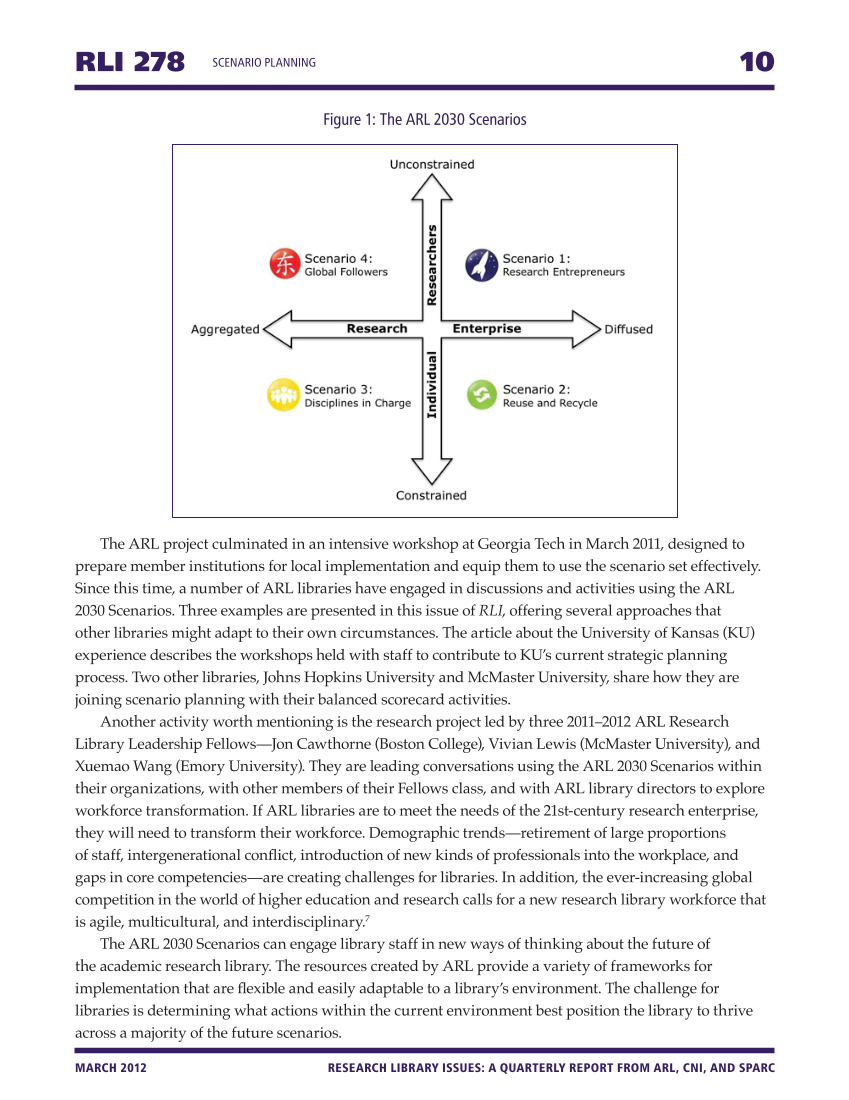RLI 278 10 March 2012R esearch Library Issues: A Quarterly Report from ARL, CNI, and SPARCarc Scenario Planning Figure 1: The ARL 2030 Scenarios The ARL project culminated in an intensive workshop at Georgia Tech in March 2011, designed to prepare member institutions for local implementation and equip them to use the scenario set effectively. Since this time, a number of ARL libraries have engaged in discussions and activities using the ARL 2030 Scenarios. Three examples are presented in this issue of RLI, offering several approaches that other libraries might adapt to their own circumstances. The article about the University of Kansas (KU) experience describes the workshops held with staff to contribute to KU’s current strategic planning process. Two other libraries, Johns Hopkins University and McMaster University, share how they are joining scenario planning with their balanced scorecard activities. Another activity worth mentioning is the research project led by three 2011–2012 ARL Research Library Leadership Fellows—Jon Cawthorne (Boston College), Vivian Lewis (McMaster University), and Xuemao Wang (Emory University). They are leading conversations using the ARL 2030 Scenarios within their organizations, with other members of their Fellows class, and with ARL library directors to explore workforce transformation. If ARL libraries are to meet the needs of the 21st-century research enterprise, they will need to transform their workforce. Demographic trends—retirement of large proportions of staff, intergenerational conflict, introduction of new kinds of professionals into the workplace, and gaps in core competencies—are creating challenges for libraries. In addition, the ever-increasing global competition in the world of higher education and research calls for a new research library workforce that is agile, multicultural, and interdisciplinary.7 The ARL 2030 Scenarios can engage library staff in new ways of thinking about the future of the academic research library. The resources created by ARL provide a variety of frameworks for implementation that are flexible and easily adaptable to a library’s environment. The challenge for libraries is determining what actions within the current environment best position the library to thrive across a majority of the future scenarios.
























